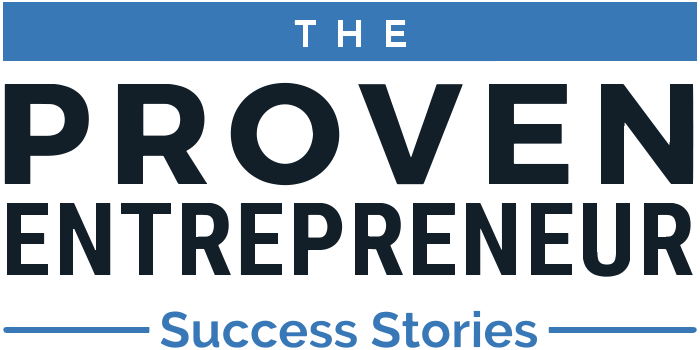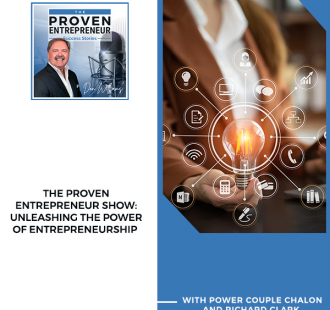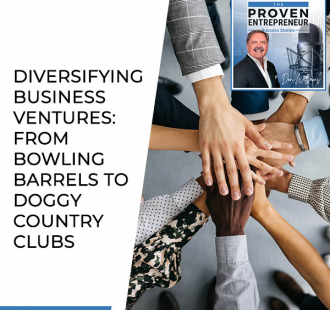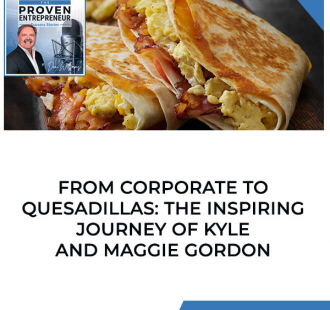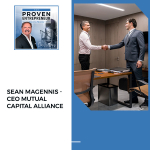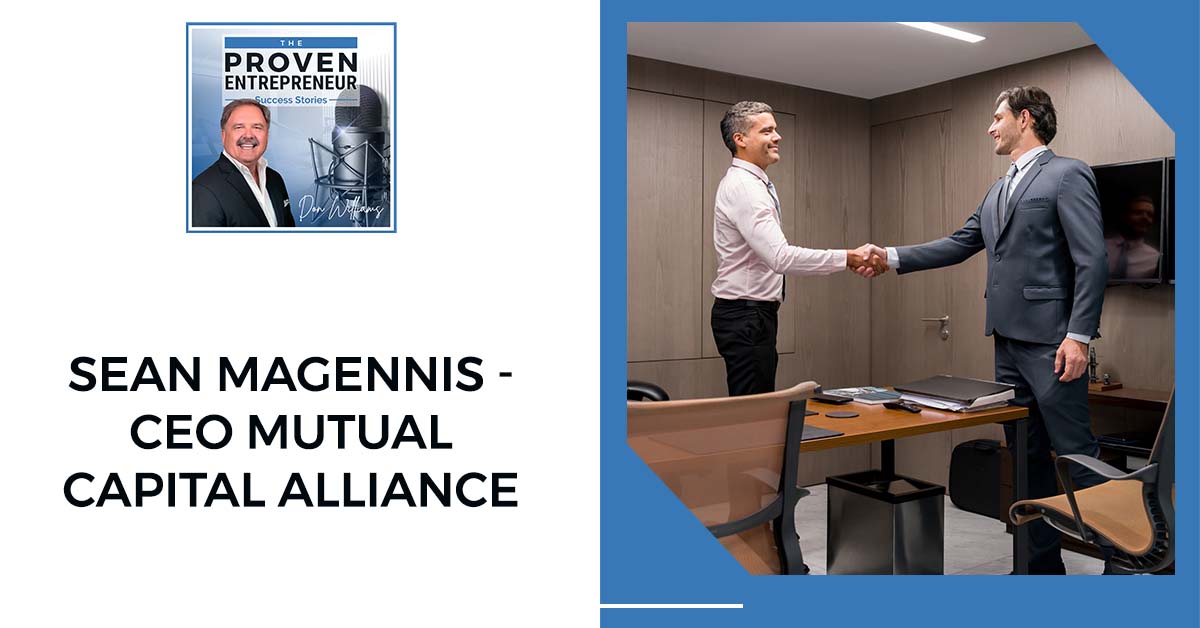
Experience is the mother of all wisdom, for we learn from our experiences. But we don’t have to experience the mistakes others make in their journey. If we could share each other’s experiences, we could learn meaningfully. Sean Magennis, the CEO of Mutual Capital Alliance, discusses how the forum provides a shortcut for your entrepreneurial journey. Sean also takes us on a rollercoaster ride of impostor syndrome and how dealing with it differentiates a successful entrepreneur from an entrepreneur. Learn more from a seasoned entrepreneur and leader by tuning into this episode. There’s so much more to unpack today!
For information on how to work with Don visit Work With Don Williams
You can also reach out to Don Williams at https://donwilliamsglobal.com
Please join Don and his businesses in support of St. Jude’s Children Research Hospital in its Mission to cure Childhood Cancers. You can donate to St. Jude at stjude.org/donate
—
Watch the episode here
Sean Magennis – CEO Mutual Capital Alliance
Former YPO Global President & COO, EO Global President, CEO Coaching International President, Lumini Chairman
Do I have a great guest for you? In this episode, our guest is the CEO of Mutual Capital Alliance, which we know is founded by my good buddy Rick Sapio. He’s the Chairman of a company called LUMINI Network and a past President of CEO Coaching International. Check this out. He was a seven-and-a-half-year past President of YPO or Young Presidents’ Organization and was President of EO on the member leader side. Sean Magennis, welcome to the show.
Don, thank you for having me. You aged me there with that introduction but that’s fine. We season and age well as we go through life.
We do season and age and some of you do it well, like yourself.
Thank you. It’s great to be with you. I’ve been looking forward to this.
My pleasure. You bring a unique skillset to the show because you have a very solid entrepreneurial history and executive history where you have served in organizations where maybe you had a stake and equity but you were not the primary. I’m so excited to have you. I’m going to take you back to young Sean. Think back to when you were 5 years old and advanced up to 18. We’re going to talk about that time range of your life. Your accent tells me you were not born and raised in East Texas.
I was born and raised in South Africa.
I don’t know if you know this but my wife and I are headed to South Africa. We’ll be in Cape Town and running amuck for three weeks.
Is this your first trip to South Africa?
Yes. Hopefully, they’ll let us come back.
After the show, if you need any recommendations or some insights, I’m sure you have it all planned but I do this so often for friends and I go back every year so I’m very current. If you need anything, give me a shot.
Afterwards, I certainly want your input. Anyhow, we’re back to young Sean in the home that you were raised in. One of the adults in your home, mother, father, grandparents or whoever that might have been, was anybody an entrepreneur?
Both my parents were entrepreneurs. My mother and my father and my mother’s mother was an entrepreneur. My grandfather passed in his early 60s. He and my grandmother had come through Africa during the Second World War. They arrived in Durban. My grandmother was a nurse and a matron but she ran one of the convalescent hospitals for wounded soldiers in the Second World War. My grandfather had been in the military, had retired and died. My grandmother had ten daughters and she had to care for them. She started three butchers after her nursing career was over. The war was over.
She put ten girls through school, got them all out of the house and married well. She was an extraordinary force of nature. She died when she was 97. You can imagine she ended up with 32 grandchildren. My mother put my father through university. He worked in the brokerage business and learned sales. He was an accountant. The partner started an office furniture manufacturing business and went through all the trials and tribulations of an entrepreneur. My mother would renovate national monuments and Victorian houses. She had a real estate sales business. They were hardworking people all their lives.
There was no hope for you but to be an entrepreneur.
I’m 1 of 3 siblings. None of us joined either my mom or dad. My mother would’ve liked my brother and me to join her in her business but we didn’t. All three kids have benefited from the work ethic and the example of our parents.
When I first started the show, I thought, “Every guest will have this great entrepreneurial legacy.” That’s not true. It’s about a half and a half. About half of the great proven entrepreneurs had no entrepreneurial example. They were just wired that way. There’s some of that. We’re still back with young Sean. Tell us about your first job or entrepreneurial venture and the first time where you traded skills, time and effort in return for money.
At fourteen years old, I was a swimmer and a water polo player. The high school I went to did not have a swimming pool. We had to go to the public school up the road, which was filled with people. We had two lanes. We’d have to ride our bicycles up there and come back. At the time, the government school said, “You’re allocated some money to build a school but you’ve got to go out and raise some X amount of dollars.” It was maybe $100,000. Let’s use that number. It was somewhere in that range. They said to a group of us kids, “You need to help out.”
I was so passionate about the cause. I don’t know why but I got the challenge. Every evening, I got on my bicycle and had a form that explained it. I went door to door. I started in my neighborhood with people that knew me. I worked out neighborhood by neighborhood. At one point, I was going 5 miles out, which was quite a long way. I raised individually $12,000 all in cash over a period of the year.
My scariest experience was about 7:00 one night. It was dark. I go up this long winding driveway. I could hear some dogs. South Africa’s very security conscious. The door opens and this Doberman Pinscher comes out and bites my leg. It bit me below the knee. I didn’t break my skin because I was wearing jeans. I must have looked like a deer in headlights. It was my best sale ever. This lady gave me $200 to keep me quiet. I may have shed a tear, which is not bad.
Even though the money wasn’t coming to me, I discovered that I had a gift for telling the story, sharing a concept and having somebody believe in me enough and trust me that they made the investment. Every single one of those individuals got an invitation to the opening of the swimming pool. Once we raised the money, it took another year to build. I only got the benefit of using it for one year, my last year at high school. The thrill was to know that that was part and parcel of our contribution. Imagine the pride that you have in that. It was fantastic. That was the first.
My natural being, I love people that are not scared to ask for money. I’ve lived on the sales side of all my businesses and so many times, entrepreneurs have an unbelievably good skillset but it’s not asking for the money. Truthfully, regardless of your business, the marketing and sales piece is probably the most valuable piece of anything that you do.
Also, patience. The second story was about my mother. She was in residential real estate and had her business. She would do open days and open houses every Sunday. She was a single parent. My brother and I, typically on a Sunday, my mother would not want to leave us at home because we’d get up to no good. My sister was good. She’d dress us up, put us in a jacket, coat and tie and give us the information or the tear sheet on the house.
She trained us. We would only speak if we were asked a question. If we didn’t know the answer, we’d say, “My mother will have the answer.” We did hundreds of open days with my mom showing people through homes and we learned what people liked, what things were not great about the house and how to overcome objections. We learned that by watching her, listening and doing.
We’d go to church and go to an open day. I would say that was probably three Sundays out in a month. It was a phenomenal experience. A couple of big lessons are being able to show up well-prepared and being a good listener. We would take notes. My mother didn’t have time to meet with them. She’d have a set of criteria, write down what you heard and then grade them. “Is this a high prospect, a low prospect and a medium prospect?” She was smart and we learned a lot as a result of that.
Show up well-prepared and be a good listener. Click To TweetAlso, we learned to interact with all types of people from all walks of life. Also, people in different economic spheres. My mother was a stickler for manners. We always had please and thank you. We always opened the door and closed the door for an adult. We were very well-schooled in that area. I laugh because it brings back great memories.
Many young people don’t have the opportunity to learn with persistence and repetition and that doesn’t help them. I can think of my first job. I was on the back of a John Deere tractor in a wheat field at Wheat Harvest driving a tractor for twelve hours a day. I learned right off the bat what hard work was. I learned I didn’t want to be a farmer. I was like, “I’m going to have to do something else because I don’t want to do this.”
If you knew my mother or you spoke to anybody that knew her, my mother was a cleanliness fanatic. We’d go into some of these homes. We’d get there a good hour, an hour and a half early because we learned some people hadn’t made their beds. We would be making their beds. I can make a mean bed, Don. I went to boarding school from the age of seven. I went to the Army. I know how to iron, sew and make a bed.
My mom could rely on us. If the kitchen was dirty, we were in there cleaning. We knew the relation to the success of a sale meant that my mother could pay the mortgage and our school fees. Living in a single-parent household, you’re very well acquainted with the bottom line. My mother schooled us. She wasn’t holding anything back. We were part of the team. All three of us.
Truthfully, the family ought to be the primary team. That makes sense. “We are the team.” We’re moving past your school days. You went to university. Did you join the Army first?
I went to the Army first. I did two years full-time. We were drafted into the South African Defense Force. I had a ten-year commitment. You did 2 years full-time and then you had to do a couple of months a year for as long as it took for you to accumulate 10 years’ worth of credit.
In the US, it’s what we would call the Reserves.
You went into the Reserves after your first two years.
After that, you went to university?
Correct.
Was it a university in South Africa?
Yes, a great little university called Rhodes University in a town called Grahamstown. It’s a university town. They had a specialty in law and phenomenal English faculty. It has one of the best pharmacy faculties in the country. It’s a very good geography school. It was initially funded by Cecil John Rhodes. It would be in the top five universities in the country. I initially thought I’d go into Law. I did a very broad Bachelor of Arts degree. I double majored in Industrial Sociology and English. I threw Psychology in there for a couple of years. I decided not to go down the Law route but maybe the Psychology route would be good.
When I immigrated to Canada, I started a Master’s degree in Counseling Psychology because I thought that would be something that I could leverage at some point. In hindsight, maybe some business courses would’ve been great. I did take a year’s worth of night classes and got diplomas in Financial Management and Marketing but not at the degree level. I got the basic tools and then got bitten by the entrepreneurial bug. I left the Master’s degree because I started to make some good money. That’s what got me on an entrepreneurial venture of my own.
What was your first entrepreneurial venture as an adult? What was your first company?
It was called Thomas International. It was similar to a franchise model. I acquired the distribution rights for Canada initially to a suite of psychometric and employment testing tools. A group of psychologists out of the UK had created these tests back in the day for the UK military. They were using them to determine math, reasoning and working memory behavior. They had a DISC tool as part of their foundation, like a Myers-Briggs type tool.

I had been a client of theirs in South Africa. My first job was working for a friend of mine’s dad, who was a top entrepreneur. Part of the training that you did was learn how to recruit people. As part of that training, you had to learn how to interpret and diagnose these test instruments so that you knew what you were reading and looking at.
I’d spent a year getting certified. On my way to Canada, I popped in and met the owners of this firm, Ray and Doreen Reed, a fantastic couple and their son Martin Reed. They took a shine to me because when I got to Canada, they said, “Why don’t you go and meet our distributor in Vancouver who hadn’t been doing very much with the license?” I gave them my report after a series of meetings and they said, “If you are open, we’ll allow you to have the city of Toronto but we want you to produce.”
In my 1st year, I sold over $100,000 worth of tests. I set up my shingles and LLC. The next year, I took over the Vancouver license. The rest is history. I built up that business over fourteen years. I ended up acquiring the US rights as well as the Mexico City rights. The was the advent of computerization and the dot-com world. I convinced the owners to allow me to invest my money in developing a web-based solution for scoring and online reporting, which I ended up owning and then selling very successfully in 2003. I sold that business in 2003 after a fourteen-year run. It was a great experience.
The US operation was based where?
I based it in Dallas, Texas. I moved here in 1999. I met my wife at EO. My wife was the first woman president of EO. That’s how we met. We met in YEO back in the day when it was called YEO. María Cintrón is an amazing woman. My single greatest benefit of the O organization is having met and married María.
The home team is still a primary team. Here’s my YEO story. I don’t recall the year but I’m living in Wichita Falls, Texas. I have a company and we’re doing very well. One of my clients called and said, “Don, you should look into this group called YEO and join.” I was like, “Tell me a little bit about it,” and he did. I said, “I’m not a joiner and I don’t play well with others. I’ll pass.” Years later, I’m introduced to EO and it takes about a year before I found out it was YEO back in the day. It’s funny how life works. My first bite at the apple, I said, “No, thanks,” and I’ve gone on to have quite a bit of involvement with EO.
I know you have. Thank you for doing that because EO is built on volunteering. It’s the same as YPO. They are 17,000 members in EO in 2023. It’s all on the shoulders of folks like yourself. I played a small role. María and thousands of other people did. I look back and go, “I learned so much about being an entrepreneur from my fellow YEO and then EO members and then YPO friends and members. I can’t tell you.” It’s the gift that keeps on giving too.
When I joined EO, I had been an entrepreneur for 25 years. I probably had not asked anybody a question in twenty years and I certainly didn’t share anything with anybody. It’s the peer experience for entrepreneurs. Though, it would probably relate to other people.
It does. It translates so well. If you look out there and see the number of peer groups that have sprung up, a lot of them were stimulated by YPO initially. You’ve got a plethora of community groups or peer-oriented groups where people learn from each other. You think of the classic Twelve-Step program. All of the fundamental characteristics of learning from adversity, shared experiences, observation and through trial and error, you get so much of that and in groups like EO, it makes it more real.
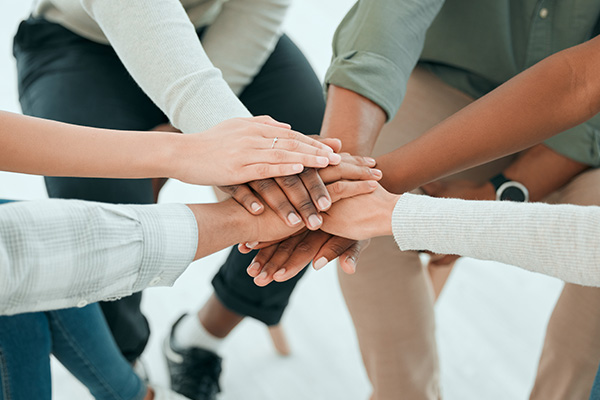
There’s this whole series of debates and articles about Imposter syndrome. I was a victim of Imposter syndrome in the early part of my entrepreneurial journey because I was very fortunate. I worked hard for everything but you start to develop success. You look back and go, “Is that real? Can I get more? Can I get less?” You start to question. Being in a group of other EO members where you see the ups and downs, it’s a true microcosm of life, Don.
You see the reality of life. Life is messy. It goes through its phases but with other people. My friend Rand Stagen says, “Go on the path together.” I love that quote because that characterized my life. I could not have imagined all the various things that I’ve experienced. In every single experience, there have always been catalysts and supporters, people that have put me on their shoulders. I’m eternally grateful.
I’m glad we’re spending a little time talking about the Os and all of that. Maybe we can start a new O. Who knows? An EO member company has to have minimum top-line revenue of $1 million. There’s a certain percentage of members that own lifestyle businesses and are not derogatory at all. In any country in the world and certainly in the United States, having a lifestyle business for many people is a lot of contentment and freedom above and beyond a W-2 job. In YPO, there are thirteen million in 2023. Also, a little different mix of entrepreneurs but also level executives and family businesses.
It’s roughly 1/3. It’s slightly more family-owned businesses, some multi-generational and entrepreneurial but are equal. The smallest group is about 25% of the total membership of seasoned professional business executives.
That’s a great mix. Fortunately, the two organizations, YPO is based in Las Colinas and EO is in DC. They’re very collaborative and have a lot of cross-cultural activity, learning and sharing. An average member of EO will tell you, “EO changed my life.”
It changed my life. There’s no question about it. YPO is a big part of that. When I joined EO in 1992, we just had over 500 members but I was told in my recruiting that we had 2,000 and it was a giant fib. That was my dear friend Peter Thomas, who was the greatest salesman at the time that I’d ever met. He was the Founder of Century 21 in Canada. He’s an amazing businessman and a great friend. Peter was running the recruitment team.
I joined the Toronto chapter when we had zero members. I was a founding member. I went to a meeting the day after our evening presentation. Peter went around the room and nominated everybody for a board role and said, “Your goal is to get us to 50 members in a year. You get your charter status. Good luck. Here are some tools and away you go.”
I went home and said, “I’ve paid $2,000 to build an organization. What’s going on?” It was a fantastic experience. As a result of that, I got involved in volunteering for leadership on the YEO board back then. It wasn’t the board. I was like a subcommittee of the board and they said, “Would you like to tackle getting the forum up and running?”
They had a basic forum program which was cobbled together based on what YPO was doing. They said, “YPO has generously offered to have you come down and spend a week in Las Colinas with their head of the forum. They’re going to train you and give you all the materials. We’d like you to then take it on, take backup to Canada to your office and create the EO version of the forum.”
I came down. I spent a week with this delightful woman by the name of Maria Johnson. She was fantastic. She was running a forum at the time and that’s what I did. Our executive director got very involved and then he started his forum business. The gist of the story was we were gifted by YPO a lot of best practices and then molded and customized them for the unique entrepreneurial community, which is EO, a slightly different community.
We seated some amazing EO members who became certified forum facilitators because they became passionate and good at it. It’s people like Ellie Bird and Sue Hesse but they were all YEO members. They became institutionally famous both in EO and YPO and have delivered incredible value. We went from the basics to officer training to then scaling that and then being able to take that around the world. If you think of where it started, it started in YPO. It then morphed and grew. In some ways, it improved. There was cross-sharing so everybody rose together.
That is the cornerstone and probably still the single greatest benefit for both of the O organizations. The essence of the forum is how you authentically and vulnerably show up in a safe space with your peer group and contribute through experience. That was the unlocking maneuver that created something extraordinary in the world.
The essence of a forum is how you authentically and vulnerably show up in a safe space with your peer group and be contributed to and contribute through experience. Click To TweetI concur. I did not know that history. I’m thrilled to know that history. For our audience that maybe is not familiar, forum is an old term and probably back to the beginnings of humanity, it was a place where people shared ideas. We see it a lot in Roman history. That’s what started showing up a lot as a forum in the O organizations. I love that. I’m so stealing that, Sean.
Steal it with the greatest of pleasure, Don.
At least I told you. I’m an honest thief. In the O organizations, a forum is maybe 6 to 10 individuals who get together once a month for probably 4 or 5 hours. They take a trip. Sometimes it’s to Las Colinas, Las Vegas or South Africa. They take a trip somewhere and spend 2, 3 or 4 days together. They decide their commitment. If they have a goal, they decide their goal, as well as they should. They share business, family and personal experiences in an environment of no expressed judgment. It’s a very safe place to share.
I’ve been fortunate that I’ve been in my chapter forum for many years. I’m in two regional leadership academy forums. Those are quarterly because they’re people that are all over. I’ll have a forum experience with every O member almost every time. Anna Burch told me one time, “I didn’t use to tell anybody anything and now I tell everybody everything.” There’s some real benefit to that.
Do you know what I love about it, Don? I can meet an EO member or a YPO anywhere in the world who’s in a forum. Instead of taking 1 hour or 1.5 hours and you don’t get to know the person or second-guessing within 2 minutes. That’s the nature of the conversation because you are schooled in being authentic. You could say something like, “Don, I’d like to bring you into my confidence. Could we treat this in the same degree of confidence that we treat each other in the forum?”
Any mask drops. Automatically, you’ve given each other approval to tell it like it is. I wish we could bring that to many more conversations, whether it’s in community areas where we seem so at odds with each other. If all we did was utilize the fundamental concepts of suspending judgment, listening without the judgment, hearing somebody, meeting them where they’re at and then holding that confidence so that you don’t take that and tell it to ten different people, that would change a lot of conversations, wouldn’t It?
If we utilize the fundamental concepts of suspending judgment, hearing somebody, meeting them where they're at, and then holding that confidence so that we don't take that and tell it to 10 different people. That changes a lot of conversations. Click To TweetNo doubt. We’ll change the world one person at a time. We won’t push a broad brush across humanity and change the world. It’ll happen one person at a time.
It’ll happen meaningfully one person at a time. For me, it’s why I’m still in the forum. I’ve been in my new YEO gold forum for years. That’ll age me, Don. I have my forum meeting. Every month, I cannot wait to spend time with nine other individuals who are so different from me with different lived experiences but who have my back and I have theirs. I’ve been in a forum since 1992. I’m not overly committed but I’m sold because of the value that it’s contributed to my family, my business and myself.
I can’t tell you what a luxury it is, particularly at certain times when I’ve been down. I’ve had a failure. I’ve had a death in the family or something going on that’s challenging. I can take it to my forum not to dump it on them but to let it be and get some feedback. It happens every time. There is somebody and sometimes multiple people in the group that have been through a very similar experience and can provide you perspective. Sometimes, it’s all you need and your family gives this to you but sometimes it’s good to get that virtual hug from a group of people that are intimate with both your personal, professional and business life. It’s like free therapy in some instances. Sometimes you need that.
You brought up Imposter syndrome. It’s human. It’s not negative. Everybody has some of it sometime. Maybe for the entrepreneur, they’re like, “I’m going to dominate the globe and sell a bazillion of them. I will be the king of the world.” At 2:00 in the afternoon, we lose a big client or a key employee. Can you ride that rollercoaster? At the lows, that doubt is all it is. It gets bigger and you’re farther away from it at the highs. You don’t see it but we could rename it a human syndrome because it’s as common. If you’re breathing, you have it.
We all have it. It’s how we deal with it and the awareness of it. Once you’ve been through that cycle a few times, it helps you manage it in a much more proactive and calmer way. Certainly, that’s been the case for me.
Once you name it, you can claim it. I’m feeling a little of that and I know that’s not the truth. It’s a little reframing and life gets better. It’s an unbelievable career. I’m going to take you back and ask you a hard question. I want you to think back on your career as a hard lesson. Many times, people look at entrepreneurs and think it’s all rainbows, unicorns, sunshine and tulips but many times, it’s not. Can you think back across your career to a moment where you’re like, “That hurt?” Maybe after we have the beauty of the perspective of time where we get some distance on it, we can look back and say, “That did hurt but maybe that was the best thing that could have happened for me at that time.”
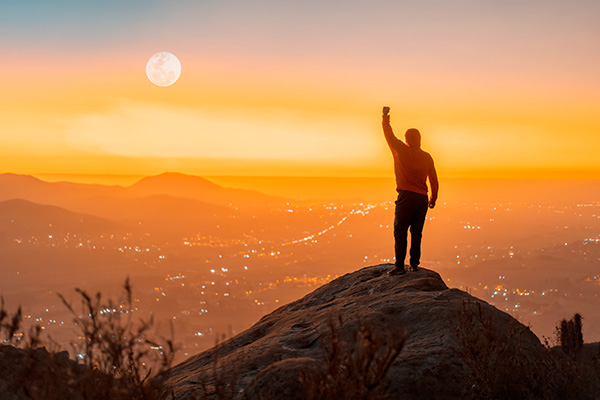
2008 and 2009 for both myself and my wife María was a very difficult period. I had spent the previous five years with a fabulous guy who lives in Fort Worth named Don Osberg. He’s an amazing businessman. He came up through the city group of companies. He was a bank’s Chief Financial Officer and ended up being the CEO of Diner’s Club. Done, me and some business partners had created a financial revolver structure or a loan structure to stimulate the development and construction of low-income housing in Mexico.
We had a great financial partner whom I’d worked with previously in my previous business, a large global banking business. We were chugging along and doing very well. With the financial collapse of ’08 and ’09, our lender went out of business within two weeks of the crash. Simultaneously, my wife and her EO partner were building second homes in Mexico and their lender, all of their capital, also within two weeks. You had both of us out of business. I would never have predicted that, not even in a million years and not for both of us at the scale. We were fortunate that we had some runway, worked out of it and didn’t have legal cases and neither did María.
We ended up having to pivot and find different sources of income. When you’re a two-income entrepreneurial family and you have this already established level of success and you have to start again in many ways, it was a very confronting and embarrassing set of circumstances out of our control. The lesson learned there was always to have a plan B when it comes to capitalizing one’s business. For your readers that are entrepreneurs in business, having rainy day funds is very important.
If you’re the sole proprietor and you’re funding it yourself and if your business has the ability to throw off cash, make sure that you have as much software as possible to at least cover you for six months, if not a year, in a liquid vehicle and that you can get your hands on quickly. When you go from chugging along with a regular line and you go over the cliff and you suddenly end up within 2 weeks down to 0 and you’ve still got to make payroll and vendors that you have to pay, you’ve got to execute on the contracts that you have in place.
If you have no capital and reserves, then the implications and what happens are very serious. That was a pivotal lesson. It also gave us both a little perspective in terms of if one of us was overly leveraged on risk, the other had to be leveraged the other way on security in terms of the way that we were working. There are a lot of entrepreneurs that have had multiple failures. Particularly from circumstances that challenge you, if you learn, those lessons are invaluable.
That lesson came at a point where I’d already sold a company and built a very nice business. I had no expectation of that happening. There’s always a silver lining if you are whom you say you are and you believe in yourself. I had a track record. I knew that I could bounce back. I took a small group of people and started a little consultancy. Within three months, I was back cashflow positive and built another nice little business but it was that tough.
Here’s the other thing. We had structured our lives so that we weren’t living beyond our means. We had a beautiful home but we didn’t have a mortgage payment that was taking 2/3s of our monthly income. We didn’t have massive car payments. We weren’t buying expensive things. We were living comfortably and well within our means, which enabled us not to get panicked and do silly things. That was a profound lesson and there have been many lessons along the way where I would say if I had to do it over again with this experience, I would’ve done things a little differently.
As would we all. If I knew then what I know now, I would’ve made some changes. I love that. There’s a real golden nugget in there. I remember when my boys were becoming of age to drive, I said, “When cars touch, that’s called an accident. Cars are not supposed to touch. Airplanes are not supposed to touch. Businesses are not supposed to run out of money.” Job one is to keep some money. We saw that in spades in March of 2020 when the US shut down. Companies that had no cash had a hard time surviving. Companies that had a safety net were able to make some progress.
One more thing, Don. I learned with the people that you hire. I was blown away by the loyalty and commitment, how people took reductions in pay and how everybody got together. That’s a factor in the culture you set. If we’re authentic leaders and we’re in it with the employees, it makes a massive difference. I’ve seen other circumstances where less than appropriate CEOs, people bail because they weren’t investing. There are a lot of other things that we could unpack there. Cash and make sure that you communicate transparently with your people during a crisis. If you don’t, you are not going to get that commitment that I certainly have received and that I’ve seen others receive.
It's who we are as leaders. It makes a massive difference if we're authentic leaders and are in it with the employees. Click To TweetWhen you look at your team and the people that are wearing jerseys, some people are on the team and some people are just wearing the jersey. They’ll be the first to go. It takes a little reflection of yourself as a leader. If your ratio is out of balance, the real teammates and the pretenders probably start not there but at another level. I’m going to ask you the tough question. This is the one that stumps most people but I gave you a forewarning.
Sean, I’m going to put you in a time machine. I’m going to transport you back and you’re going to get about 60 to 90 seconds to talk with 20-year-old Sean. I want to know what you would share with Sean that would help speed him along his entrepreneurial journey. Into the time machine, you go. All the way back. Here’s Sean. What have you got?
I first say to Sean, “Don’t ignore the hard details of life. Make sure that you educate yourself on paying your taxes when you start a business, setting up your finances and your planning so that they are clean and pristine and you know where everything is. Take the extra time and make sure of the partnerships and people that you’ve done your homework and due diligence. Without people, you can get nowhere. Some people are out there and they will take advantage of you.”
“Thirdly, align yourself with experts early that have been there and done that circuit that can help you shortcut some of the mistakes that you’re going to make. You don’t need to make some of those mistakes. If you swallow your pride and you go and ask the appropriate people who’ve got the credibility, and standing to help you, that will save you in the long run.” I’d then go, “Take risks and have fun. Don’t put yourself in a box because there’s so much life to live.”
How can we help you? Is there anything we can do for you?
Don, thank you for that. Entrepreneurship is the future of the planet. Anybody that can create something that can sell something of value, that can provide their ingenuity to the world, we should be supporting them. That starts at the community level. It starts with early childhood education. For those of your readers that have young kids, teach them the fundamentals of not only how to fish but somebody said something else to me interesting and it’s how to sell the fish once you’ve caught fish.

I thought that was brilliant because I’d always had this big favorite thing. If they teach somebody to fish, they can feed themselves for a lifetime. You still need to sell that fish. If you can start early and meet people where they’re at, that’s brilliant. My desire is to be human with each other. Let’s accept each other, be kind and give each other a hand up and a leg up. In my experience, giving has enabled me to receive way more than I’ve put in.
On the fish analogy, I might even add one thing. Keep in mind that I’m a sales guy but learn how to pre-sell that fish. Go sell it before you catch it.
Don’t catch too many fish. Pre-sell it.
Do it on a subscription recurring revenue model and life will be good.
Life will be fantastic. Don, what a pleasure spending time with you.
My pleasure, Sean. Thank you so much. I’m grateful.
What can I do for you?
I’m always stumped. Ask it and people rarely do so I don’t know. I reserve the right to provide an answer for a future product. That’s okay.
You have whatever you need.
That’s it for this episode. See you next time.
Important Links
For information on how to work with Don visit Work With Don Williams
You can also reach out to Don Williams at https://donwilliamsglobal.com
Please join Don and his businesses in support of St. Jude’s Children Research Hospital in its Mission to cure Childhood Cancers. You can donate to St. Jude at stjude.org/donate
